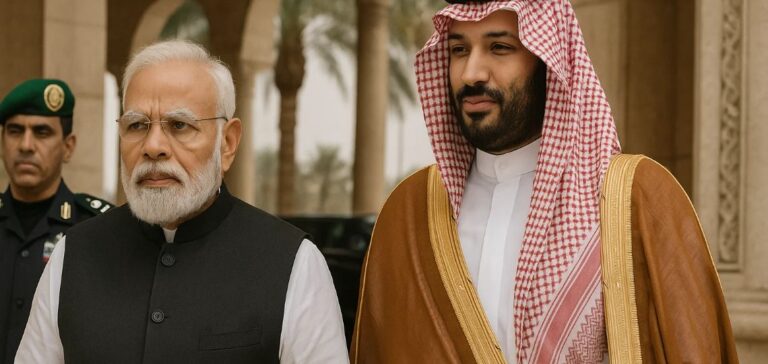Indian Prime Minister Narendra Modi has begun a two-day official visit to Saudi Arabia, marking his third trip to the kingdom since 2014. This diplomatic mission aims to deepen a strategic partnership based on energy supply, trade exchanges, and the presence of a large Indian community in the Gulf region.
Crude oil imports and sectoral cooperation
India’s rapidly growing economy relies heavily on crude oil imports to meet rising domestic demand. According to data from the Ministry of External Affairs (India), Saudi Arabia ranks as India’s third-largest crude supplier. This energy link stands at the core of the Indian Prime Minister’s agenda in Jeddah.
In a statement released by his office, Narendra Modi highlighted the “strategic and dynamic” nature of the bilateral relationship. Scheduled talks include discussions on supply volumes, price stability, and cooperation on joint industrial projects. Riyadh is also seeking increased Indian investment in national infrastructure under its Vision 2030 initiative.
Labour mobility and financial transfers
Beyond trade, the relationship is reinforced by the presence of over two million Indian workers in Saudi Arabia, according to the 2022 Saudi census. This group forms the second-largest foreign community in the kingdom after Bangladeshi nationals.
These workers play a significant role in building the large-scale projects promoted by Crown Prince Mohammed bin Salman, and their remittances are a vital source of income for numerous families in India. Narendra Modi is expected to meet with members of the Indian community during the visit.
Diplomatic alignment and international trade
This visit comes amid a busy diplomatic calendar for New Delhi, which recently hosted U.S. Vice President JD Vance to negotiate a trade agreement aimed at avoiding a 26% tariff on Indian exports to the United States.
Furthermore, the upcoming visit of the U.S. President to Saudi Arabia, scheduled for May, amplifies the strategic relevance of this round of bilateral meetings. The previous ties of both Narendra Modi and Mohammed bin Salman with former President Donald Trump add a geopolitical layer to the energy and trade-focused discussions.






















